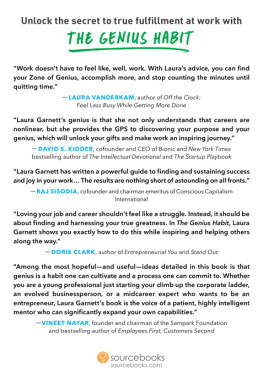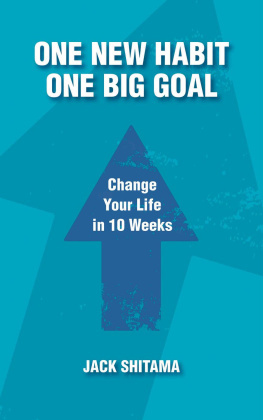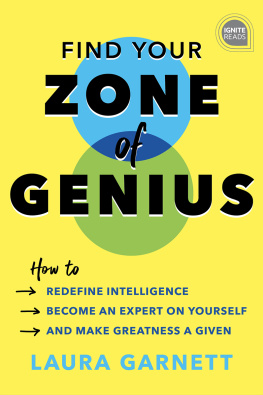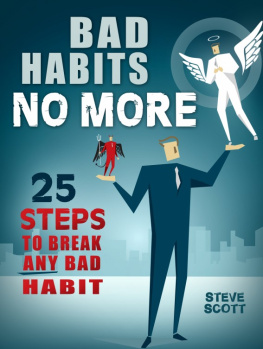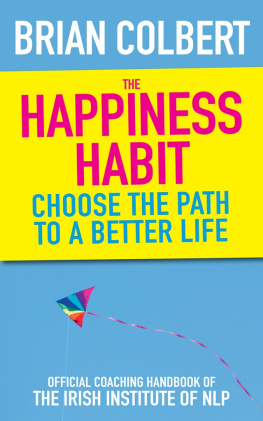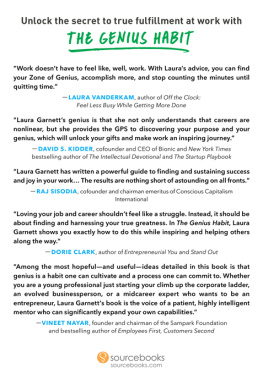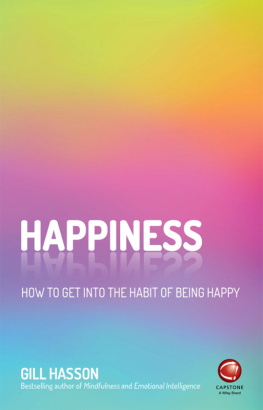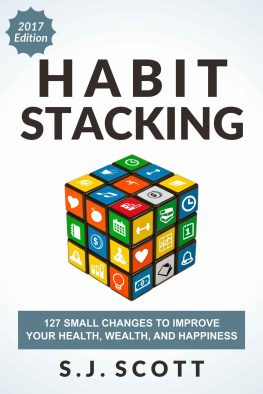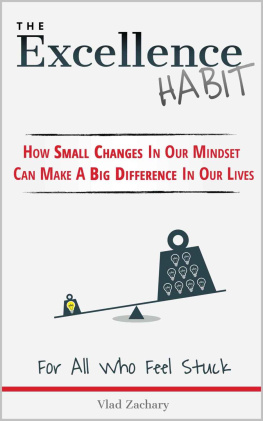Copyright 2019 by Laura Garnett
Cover and internal design 2019 by Sourcebooks, Inc.
Cover design by Jessica Morphew
Cover image by Jessica Morphew
Internal design by Ashley Holstrom/Sourcebooks, Inc.
Sourcebooks and the colophon are registered trademarks of Sourcebooks, Inc.
All rights reserved. No part of this book may be reproduced in any form or by any electronic or mechanical means including information storage and retrieval systemsexcept in the case of brief quotations embodied in critical articles or reviewswithout permission in writing from its publisher, Sourcebooks, Inc.
This publication is designed to provide accurate and authoritative information in regard to the subject matter covered. It is sold with the understanding that the publisher is not engaged in rendering legal, accounting, or other professional service. If legal advice or other expert assistance is required, the services of a competent professional person should be sought. From a Declaration of Principles Jointly Adopted by a Committee of the American Bar Association and a Committee of Publishers and Associations
All brand names and product names used in this book are trademarks, registered trademarks, or trade names of their respective holders. Sourcebooks, Inc., is not associated with any product or vendor in this book.
Published by Sourcebooks, Inc.
P.O. Box 4410, Naperville, Illinois 60563-4410
(630) 961-3900
Fax: (630) 961-2168
sourcebooks.com
Library of Congress Cataloging-in-Publication Data
Names: Garnett, Laura, author.
Title: The genius habit : how one habit can radically change your work and your life / Laura Garnett.
Description: Naperville : Sourcebooks, Inc., [2019] | Includes bibliographical references.
Identifiers: LCCN 2018033684 | (hardcover : alk. paper)
Subjects: LCSH: Career development. | Job satisfaction.
Classification: LCC HF5381 .G277 2019 | DDC 650.1--dc23
LC record available at https://lccn.loc.gov/2018033684
For Zoe and Jamesfor seeing me always.
The privilege of a lifetime is being who you are.
Joseph Campbell
TABLE OF CONTENTS
INTRODUCTION
Not long ago, I attended a dinner party while on a business trip in San Francisco. The hosts home was beautiful, one that only the elite would dream of owning. It was perfect, tastefully decorated with modern, comfortable furniture. The view of the Golden Gate Bridge was stunning, and the dining room was exquisitely set for ten.
My hosts, who worked hard for their money and status, were some of the most down-to-earth and fun people Id met. Their friends were in the same boataffluent and paying for private schools for their children, which is no small feat. Everyone in attendance dressed impeccably and had impressive resumes. I had expected the usual dinner party banter about who works where and how we were connected. But when we sat down to dinner, one of the hosts wanted to play a game. She said, Heres a question I thought we could all answer. If you could change careers and have any job you wanted, what would it be?
You would think, based on their level of success and wealth, that these people would be satisfied and happy with their jobs; after all, they excelled in careers that the majority of us would covet. Yet almost everyone at the table shared a desire to do something different with their lives. They clearly werent in love with their work. One lawyer wanted to be a musician, while the tech industry executives wanted to be writers. Each spouse seemed visibly nervous as they listened to their partners revelations. It was obvious theyd never admitted these things to one another before. Perhaps the thought of losing even a drop of income scared them. Their lifestyles dictated the need for high-paying jobs, regardless of whether they really enjoyed what they were doing.
When it was my turn, I said, Actually, I wouldnt change a thing. Im doing exactly what I want.
Oh, please, said the marketing executive sitting next to me. Come on, nobody is that happy with work. There were murmurs of agreement from others at the table.
So many people have regret or unfulfilled dreams regarding their careers that many are shocked when I say how much I love my jobits just not something you hear very often. In fact, I dont just love my job; my work is an extension of who I am and pushes me to be who I want to be. It is my constant source of energy. In fact, when I was experiencing overwhelming sickness during my first trimester of pregnancy, my work gave me strength to carry on. Seriously, I look forward to work more than vacation, and when I am on vacation, although delighted, Im eager to get back to work. I feel like every day is Friday, and I dont want the weekends to start. I dont daydream about what I could be doing with my career or life because Im already doing it. I never thought it would be possible to feel this way about my jobbut I do.
While what I just described may sound idyllic, it did not come easily. Creating a job to which Im truly and emotionally attached required a lot of work. Ive always been ambitious; however, I had no clue what I wanted to do with my life after college. Throughout my childhood, I was taught that the path to success was paved with good grades, college, and a jobany well-paying job. My parents rarely talked about prioritizing happiness or job satisfaction. What really mattered was financial security.
Even though I knew the rules I was supposed to follow, my path was a bit different. I spent two years after college exploring: I waited tables, then moved to Holland to be an au pair, then came back home and started a masters degree in nutrition. While nutrition was a passion of mine, I discovered that working with people to help them build basic healthy behaviors was boring, and it didnt provide the right challenge for me. I soon abandoned that opportunity, moved to Richmond, Virginia, and got a job at a wine distribution company as an administrative assistant. I had my eye on another position within the industry: wine sales. I figured if I worked really hard and did my absolute best, the powers that be would recognize my initiative and promote me. Even though I was bored with the work, I spent day after day filing invoices, and what I didnt finish during the day I would take home at night, trying to prove my worth to the CEO. I didnt know who I was and I didnt know what I was good at, but I knew I was expected to do whatever it took to get the job done.
One day, the CEO called me into his office. He said, You know what, Laura? We think that youre too qualified for this job and we dont have the budget for your position anymore, so were letting you go. I think youre going to be better off doing something else.
As much as it hurt, I knew he was right. That job was not right for me; it wasnt really my calling. As I will say many times in this book, its often a blessing when you get fired or get kicked out of a job. The push to move on is something to embrace because it means the job was not right for you. In the moment, however, I saw it as total rejection.
I ran out of the office in tears and decided I had to find a new job immediately. Serendipitously, I ran into a friend who was working at Capital One and told me the international bank was expanding rapidly. At the time, they had a unique corporate philosophy on hiring: they didnt emphasize experience or credentials. Instead, they relied on an extremely rigorous interview process. If you passed a series of testslogic, math, and moreyou were a potential candidate.

